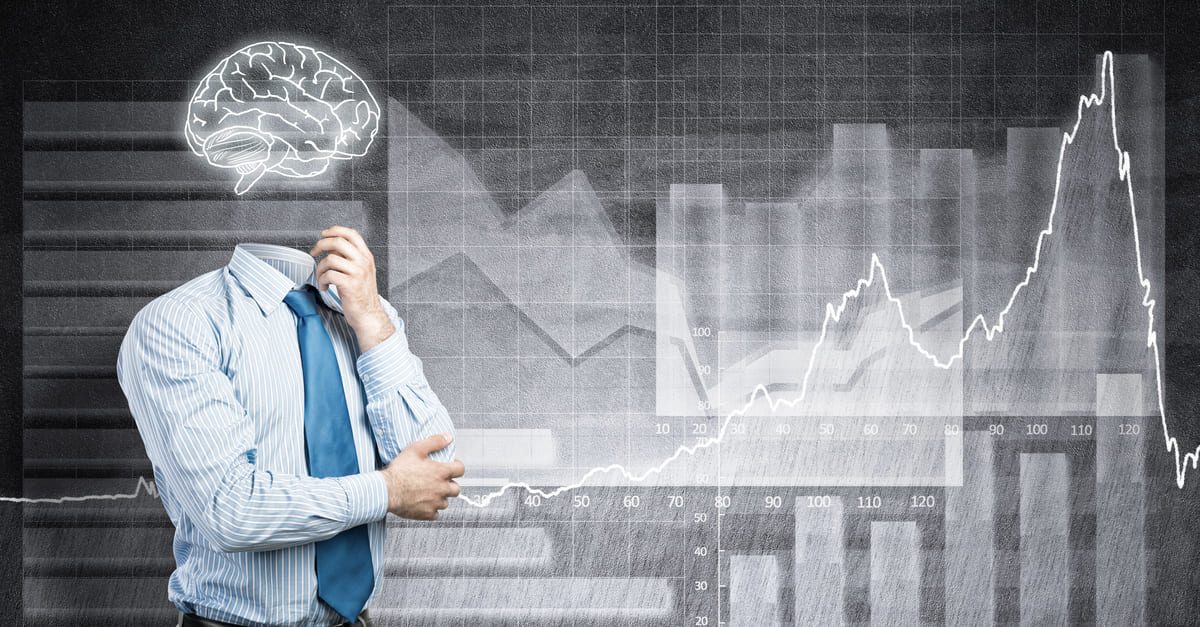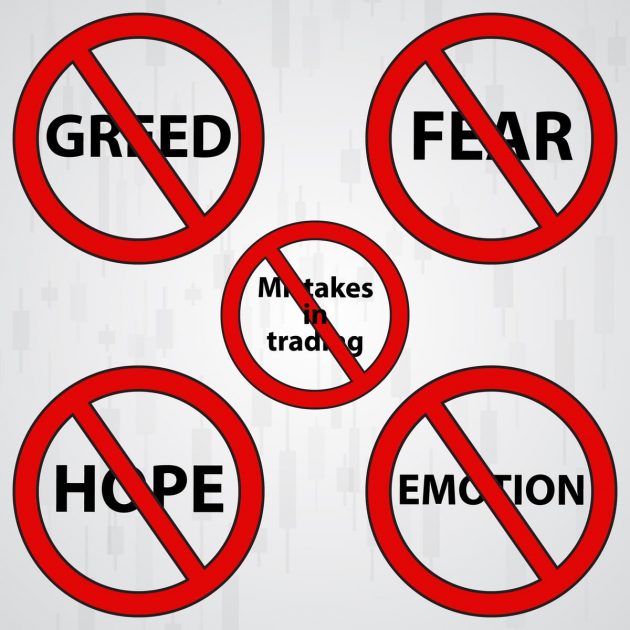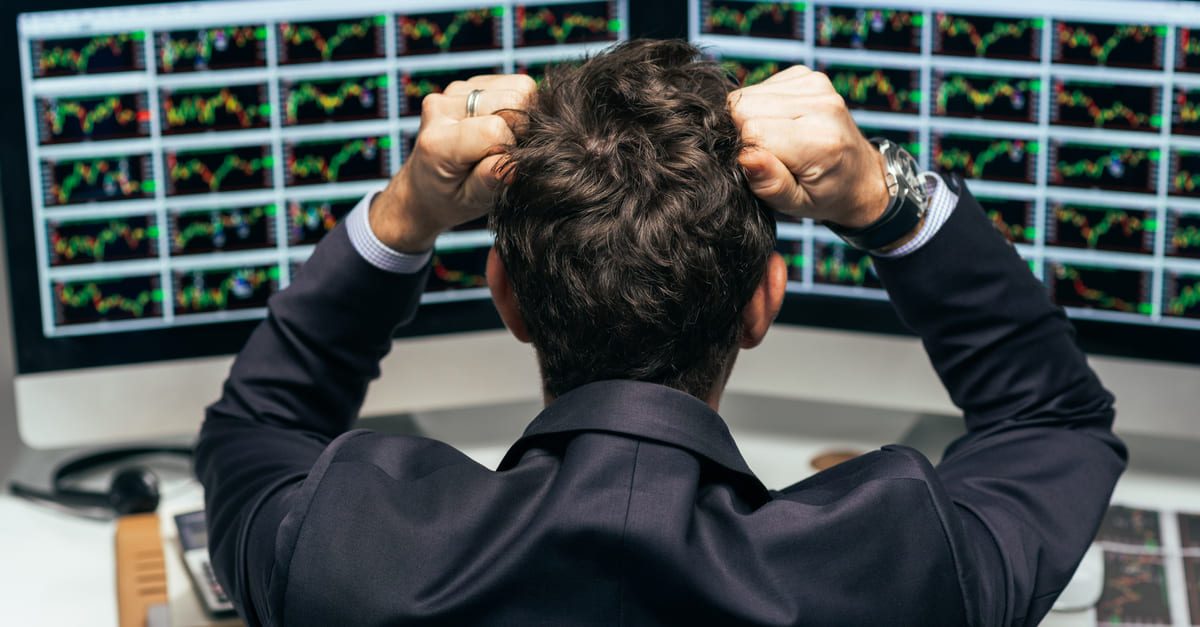Trader's Psychology: How to Conquer Fear?

6 minutes for reading
Psychology is an important part of a trader's success in the Forex market. Control over emotions (anxiety and trader's fear) is an intrinsic part of any trading strategy.
Why is the trader’s psychology important?

The thing is that the trading in Forex implies dealing with money and facing high risks of losses. In modern life, a person spends most of their time earning money for satisfying their material and non-material needs. When you work in a certain structure for a wage and do not worry that you will not get paid at all if you make a mistake; however, in Forex, it is quite different:
- Firstly, to start trading, you need to open a deposit, i.e. deposit your money on your account;
- Secondly, each open trade is a risk of losing a part of the deposit;
- Thirdly, if trading goes offhand, the trader will not only make no profit but lose; in other words, they will not only get a “wage” but will remain without the means of receiving this “wage” in the future.
Thus, the trader’s attitude to money is extremely emotional due both to the risk of losing it and the perspective of making it. Excessive emotions in trading entail both losses and a profit lower than expected.
To become an expert in some sphere, you need to carry out certain duties without useless emotions. When you come to work, you leave your family affairs at home; moreover, you do not worry about each of your operations, you just carry on with what you are to do. Your attitude to trading in Forex must be the same: your trading must be a monotonous sequence of tasks completed. All you need is to disengage yourself from the money and concentrate on carrying out a high-quality trade.
The influence of emotions on the trader’s
Let us discuss the main emotions that a trader may feel at work and must control firmly. As they say, you should know the face of your enemy.
How to fight back anxiety?
Anxiety, worry, tension are, perhaps, the most harmless emotions experienced by the trader. Normally, they are characteristic of beginners who start trading for real being not quite confident about their system. Opening each trade, they doubt the correctness of their decision, worry about its result, wait for it nervously, especially when the price remains in a narrow range for a long time. Such emotions fade after you gain some experience: keep in mind the reasons for the appearance of these emotions and never let them flare.
Perhaps, it will be best to get distracted from the terminal after you open a position, get engaged in other activities, and solve other problems. This way the time until the trade yields some results will pass quicker, and you will not have to wait nervously for it.
Trader’s fear: the main reason for failures

Fear is the reason for failures in many situations, not only trading. Fear is a psychological instrument of a human meant for survival in wild nature. It is an emotion that is very hard to conquer; many people just never manage to. Everyone feels frightened sometimes; fear helps us avoid many dangerous situations and remain unharmed. However. What to do with fear in trading?
The main reasons for fear in trading
Let us enumerate several types of fear in trading:
- Trader's fear of losing your whole deposit or all of your assets;
- Trader's fear of becoming a “beggar” (connected to the first type);
- Trader's fear of being criticized by family, friends or just people around;
- Trader's fear of debts (connected to the first two types);
- Trader's fear of destroying reputation.
Fear of each type influences the actions of the trader in this or that way. As a rule, a trader comes to the market to make a lot of money. Their main fear will be the loss of all the money they have not earned yet. Each time the trader opens a trade, they are a bit afraid because they know that both a profit and a loss are possible. Scientists have figured out that fear is the strongest when your trade is losing (logically enough). Hence, to decrease your fear of losing, decrease possible losses. The one who has conquered their fear has a colossal advantage over others.
How to fight back to fear?

In this article, I would like to show your certain ways of fighting back fear that sometimes attacks almost any trader or investor.
Trading on paper
This method seems irrelevant as there are plenty of websites and software that can monitor the trader’s positions. However, “old-fashioned” trading has its advantages: the trader rights down each action, increasing consciousness compared to opening trades in the terminal blindly. The trader prepares to analyze the trade in the future, i.e. subconsciously they are somewhat ready for a failure. In the case of a loss, the analysis of mistakes may be more productive.
The size of investments
Choose an optimal size of investments for your deposit. The sum should not be too big or too small. A loss should not be too painful for the investor/trader but a profit should make them feel proud. This is the way to develop confidence and self-esteem of the investor/trader, displacing fear.
Knowledge is power
Knowledge must be the most important “capital” of a successful person (after health, of course). Knowledge is what singles you out of other animals; knowledge is what has brought you in front of your PC. A successful person always appreciates knowledge; they even think differently. If an ordinary person is offered a million dollars or knowledge, they will choose the money. However, if they chose the knowledge, they could earn much more than a million dollars. Knowledge helps us feel confident. If we know what and when to do, fear retreats.
Experience
Knowledge without experience is hardly useful. Experience is an intrinsic part of success. Not only personal experience is important: a trader may acquire experience from other successful traders who, in their turn, gained it from others. Thus you can get a lot of useful information from other people.
Summary
I have given not that much advice on conquering fear – only four pieces. There are many more, of course, but I have chosen the basics. Analyzing trades with optimal deposits will assemble a puzzle of experience in your head that will grow like a snowball so that you will eventually be able to pass on your knowledge and experience to your followers.
Try to stay away from Forex when you are too excited or disappointed when you are unwell or perplexed by some grave problem. You will be distracted from trading and objective analysis of your trades, which will entail erratic trading and only aggravate your psychological state.
Falling prey to emotions and fears, the trader almost destroys their trading system and deteriorates the results of their work.







